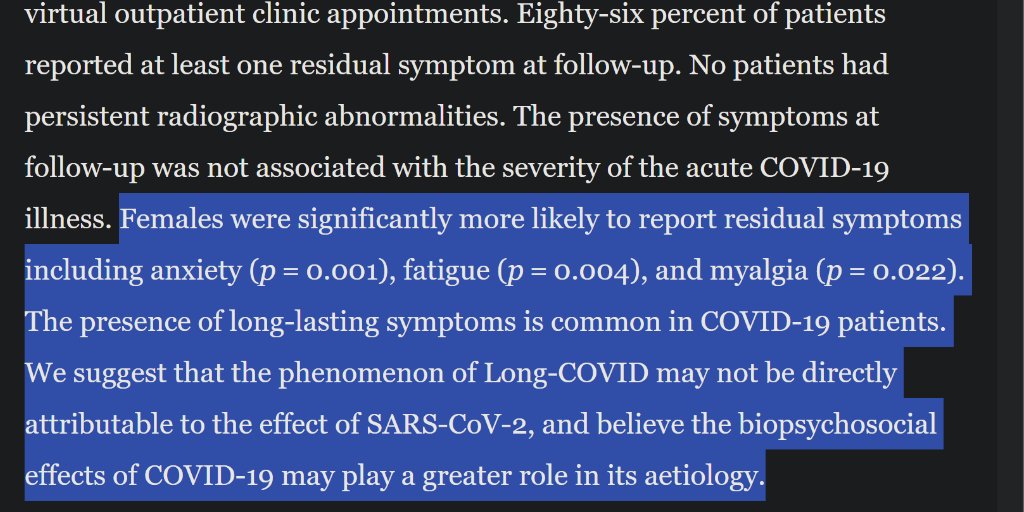
No matter how esteemed a scholar is, a personal post-hoc explanation for why oneself recovered from a given disease remains what it is: post-hoc speculation with negligible scientific value. At the same time, if this speculation proves wrong, the consequences can be fatal. 1/
https://twitter.com/PaulGarnerWoof/status/1377195611854934019
For instance, adhering to unproven treatments can in the case of serious diseases such as cancer lead to a manifold risk of death. jamanetwork.com/journals/jamao… 2/
Obviously, #longcovid is not cancer, but research so far suggests that it is highly debilitating. Its causes remain uncertain, more research is needed, and scholars will naturally disagree for some time - possibly forever. 3/
However, I hope we can agree on one thing already now: Two years into the pandemic and with limited research available, the last thing anyone, and especially a physician or scholar, should do is to spread subjective advice based on their personal “recovery story.” 4/
This is especially problematic when it involves unfunded advice such as “thinking actively” to get well from #longcovid. To the best of my knowledge, there is no Covid-19 research that supports the role of thinking styles for disease outcomes, but please convince me otherwise. 5/
That doesn’t mean that Paul Garner’s psychological mindset didn’t influence his outcomes as he states. The point is, one cannot draw any valid causal conclusions from a N = 1 study where the only participant is oneself, leave alone generalizing these conclusions to others. 6/
The reasons are obvious. To provide a central one: Humans have a remarkable tendency to retrospectively draw causal relationships between unrelated events. We all do it to make sense of the world. It's normal, it creates coherence. 7/
To use a simple medical example: one may have had long term symptoms of condition Y. A few months later, one may have completed activity X. A week after that, Y resolved. Now, many people may draw the conclusion that X solved Y. 8/
However, there are a myriad of alternative explanations. E.g., in the case of #longcovid, a lot of people fortunately get better over time without treatment. Thus, activity X may have been totally irrelevant for curing Y. It would have happened anyways. 9/
Alternatively, one’s symptoms may come from a different condition than Y. That means, behavior X may have cured something else. A biological test, if available, may give some more certainty that one's symptoms can be attributed to Y. 10/
In the case of C19, a lot of people didn’t have the possibility to get tested, especially in the early phases of the pandemic and for economic reasons. Therefore, many who got the virus but could not get tested unfortunately until now struggle with getting adequate treatment. 11/
However, scientifically, not having definite proof of Y adds a lot of uncertainty to any N = me studies that are notoriously uncertain by nature. This is likely not relevant for Paul Garner's case, but it is for many others promoting treatments on questionable grounds. 12/
Regardless of all these and many other limitations, a person may still strongly believe in a causal connection between X and Y. After all, they “personally experienced it.” And in some cases, history may even prove them right. /13
But, while this post-hoc reasoning is a natural psychological process that shapes what we personally may believe in for a lifetime, we need to be clear: It cannot form the knowledge basis for how we treat long-term effects of the maybe most consequential virus of our time. /14
• • •
Missing some Tweet in this thread? You can try to
force a refresh



